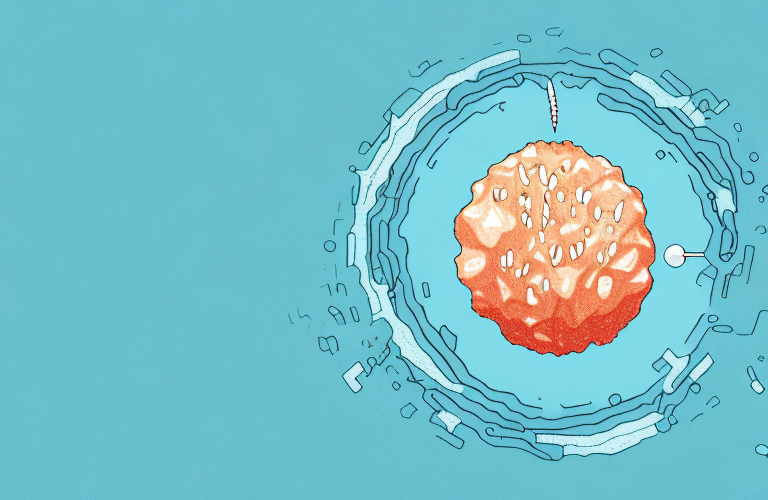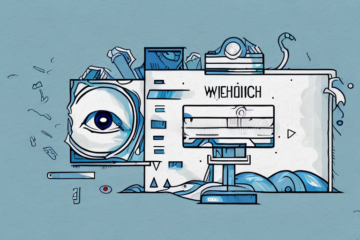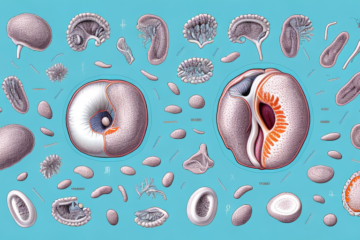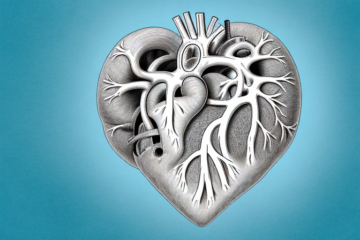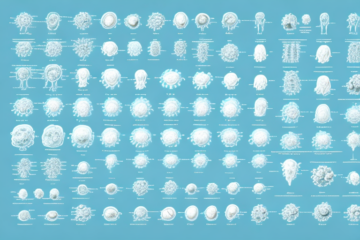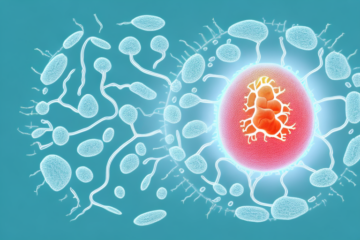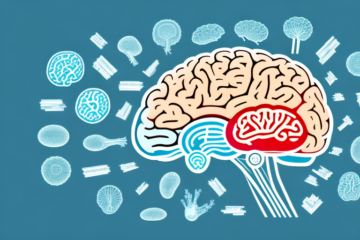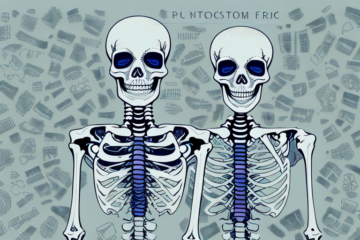Kidney stones are hard deposits of minerals and salts that form inside your kidneys. They can vary in size from small to very large and can cause severe pain and discomfort when they pass through your urinary tract. Nephrolithiasis is the medical term for kidney stones, which affect millions of people worldwide. In this comprehensive article, we will cover the symptoms, causes, treatment, prevention, and management of kidney stones.
Understanding Kidney Stones and Nephrolithiasis: An Overview
Kidney stones are formed when urine contains high levels of minerals and salts that form crystals inside the kidneys. These crystals can aggregate into stones and cause blockages in the urinary tract. Kidney stones can be composed of different substances, such as calcium, uric acid, cystine, or struvite. The size, shape, and location of kidney stones can vary, affecting their symptoms and treatment options.
It is estimated that about 1 in 10 people will experience a kidney stone in their lifetime. Risk factors for developing kidney stones include dehydration, a diet high in salt and animal protein, obesity, and certain medical conditions such as gout and inflammatory bowel disease. Symptoms of kidney stones can include severe pain in the back, side, or lower abdomen, nausea and vomiting, and difficulty urinating. Treatment options for kidney stones depend on the size and location of the stone, and may include medication, lithotripsy (using shock waves to break up the stone), or surgery.
Common Symptoms of Kidney Stones You Should Know
The symptoms of kidney stones can vary from person to person, but the most common ones are intense pain in the back, side, or lower abdomen, pain during urination, frequent urination, cloudy or foul-smelling urine, nausea, and vomiting. Some people may experience no symptoms at all if the stones are small and pass unnoticed. However, if you suspect you have kidney stones, it’s crucial to seek medical attention to prevent complications and manage your symptoms.
In addition to the common symptoms mentioned above, kidney stones can also cause blood in the urine, fever, chills, and difficulty passing urine. These symptoms may indicate a more severe case of kidney stones and require immediate medical attention. It’s essential to stay hydrated and maintain a healthy diet to prevent the formation of kidney stones. Drinking plenty of water and avoiding foods high in oxalate, such as spinach, chocolate, and nuts, can help reduce your risk of developing kidney stones.
Causes of Kidney Stones: Risk Factors and Triggers
Several factors can increase your risk of developing kidney stones, such as a family history of the disease, certain medical conditions like obesity, diabetes, or gout, dehydration, a high-sodium, low-calcium, or high-protein diet, and certain medications. Moreover, some triggers, such as stress, climate, and physical activity, can prompt the formation of kidney stones in susceptible individuals.
Additionally, studies have shown that consuming high amounts of oxalate-rich foods, such as spinach, rhubarb, and chocolate, can also increase the risk of developing kidney stones. It is important to maintain a balanced and healthy diet to reduce the risk of kidney stone formation.
Preventing Kidney Stones: Lifestyle Changes and Dietary Recommendations
Preventing kidney stones requires a combination of lifestyle changes and dietary modifications. It’s essential to stay hydrated by drinking enough water and fluids each day to flush out excess minerals and salts from your urine. Moreover, you should aim for a balanced diet that’s low in sodium, animal protein, and oxalate-rich foods like spinach, rhubarb, or chocolate. Some studies suggest that consuming citrus fruits, such as lemons and oranges, can help prevent kidney stones due to their citrate content.
In addition to staying hydrated and following a balanced diet, regular physical activity can also help prevent kidney stones. Exercise can help regulate your body’s calcium and uric acid levels, which are two of the most common minerals that form kidney stones. Furthermore, maintaining a healthy weight can also reduce your risk of developing kidney stones.
If you have a history of kidney stones or are at a higher risk of developing them, your doctor may recommend certain medications or supplements to help prevent them. These may include thiazide diuretics, which can reduce the amount of calcium in your urine, or potassium citrate supplements, which can increase your urine’s pH level and prevent the formation of certain types of kidney stones.
Diagnosis of Kidney Stones: Tests and Procedures Used by Doctors
If you suspect you have kidney stones, your doctor may perform several tests and procedures to diagnose and assess your condition. These can include a physical exam, blood tests, urine tests, imaging tests like X-rays, CT scans, or ultrasounds, and urine analysis to determine the composition of the stones and their size and location.
In addition to the aforementioned tests, your doctor may also recommend a 24-hour urine collection test to measure the levels of various substances in your urine that can contribute to the formation of kidney stones. This test can help identify the underlying cause of your kidney stones and guide treatment options.
If your doctor suspects that your kidney stones are caused by an underlying medical condition, such as hyperparathyroidism or gout, they may also order additional blood tests to check for abnormalities in your hormone levels or uric acid levels.
Medical Treatment for Kidney Stones: Medications and Procedures Explained
Medical treatment for kidney stones depends on the size, location, and type of stones and your symptoms. If you have small stones that can pass on their own, your doctor may recommend pain relief medication, alpha-blockers that relax the urinary tract muscles, or medications that dissolve the stones. In more severe cases, your doctor may suggest procedures like extracorporeal shock wave lithotripsy (ESWL), ureteroscopy, or percutaneous nephrolithotomy (PCNL), depending on the location and size of the stones.
It is important to note that prevention is key when it comes to kidney stones. Your doctor may recommend lifestyle changes such as increasing your water intake, reducing your salt and animal protein intake, and avoiding foods high in oxalate, such as spinach and chocolate. Additionally, certain medications may increase your risk of developing kidney stones, so it is important to discuss any new medications with your doctor.
If you have a history of kidney stones, your doctor may also recommend regular monitoring through imaging tests and urine analysis. This can help detect any new stones early on and prevent complications such as kidney damage or infection.
Non-Invasive Treatment Options for Kidney Stones: What You Need to Know
Non-invasive or minimally invasive treatment options for kidney stones include a range of procedures that do not require incisions or surgery. These can include ESWL, ureteroscopy with laser lithotripsy, or percutaneous nephrolithotomy, which use specialized tools to break up or remove the stones. These procedures usually have fewer complications and faster recovery times than traditional surgery.
One of the most common non-invasive treatment options for kidney stones is extracorporeal shock wave lithotripsy (ESWL). This procedure uses shock waves to break up the stones into smaller pieces, which can then be passed out of the body through urine. ESWL is usually performed on an outpatient basis and does not require general anesthesia.
Another non-invasive treatment option is ureteroscopy with laser lithotripsy. This procedure involves inserting a small scope through the urethra and bladder to reach the stone in the ureter or kidney. A laser is then used to break up the stone into smaller pieces, which can be passed out of the body through urine. Ureteroscopy with laser lithotripsy is usually performed under general anesthesia and may require a short hospital stay.
Surgical Treatment Options for Kidney Stones: Pros, Cons, and Alternatives
If you have large, complex, or recurrent kidney stones that cannot be treated less invasively, your doctor may recommend surgical options like open surgery, laparoscopic surgery, or robotic surgery. These procedures involve making incisions in the abdomen or back to remove the stones manually. While surgery can be highly effective, it also carries risks and longer recovery times than other treatment options, and it is usually reserved for severe or complicated cases.
One alternative to surgery is extracorporeal shock wave lithotripsy (ESWL), which uses shock waves to break up the stones into smaller pieces that can be passed more easily. This procedure is non-invasive and typically has a shorter recovery time than surgery, but it may not be effective for larger stones or certain types of stones.
Another alternative is ureteroscopy, which involves inserting a small scope through the urethra and bladder to reach the stone in the ureter or kidney. The stone can then be removed or broken up using laser energy. This procedure is minimally invasive and has a shorter recovery time than surgery, but it may not be suitable for all types of stones or locations.
Caring for Yourself After a Kidney Stone Procedure: Recovery Tips and Self-Care Measures
After a kidney stone procedure, it’s crucial to follow your doctor’s recovery instructions to prevent complications and ensure a smooth healing process. This can include taking pain relievers, drinking plenty of fluids, avoiding strenuous activities, and following a diet that promotes healthy urine production and prevents future stone formation.
In addition to the above measures, it’s important to monitor your urine output and color. If you notice any changes, such as decreased urine output or dark-colored urine, contact your doctor immediately. You should also avoid consuming foods and drinks that can irritate the urinary tract, such as caffeine, alcohol, and spicy foods. It’s also recommended to gradually increase your physical activity as you recover, starting with light exercises such as walking and stretching. By following these self-care measures, you can help ensure a successful recovery and reduce the risk of future kidney stones.
Recurrent Kidney Stones: Causes, Prevention, and Long-Term Management Strategies
If you have recurrent kidney stones, your doctor may suggest long-term management strategies that focus on preventing future stone formation. This can include a combination of lifestyle changes, dietary modifications, medications, and follow-up monitoring to detect any stone formation early on. Moreover, your doctor may recommend specific treatments based on the type and composition of your stones, such as medications that regulate calcium or uric acid levels or procedures that modify the urine’s chemical environment.
It is important to note that some underlying medical conditions can increase the risk of recurrent kidney stones, such as hyperparathyroidism, gout, and inflammatory bowel disease. Therefore, your doctor may also recommend further testing to identify any underlying conditions that may be contributing to your stone formation. Additionally, staying hydrated by drinking plenty of water and avoiding dehydration can also help prevent kidney stone formation. By working closely with your healthcare provider and following their recommended management strategies, you can reduce your risk of recurrent kidney stones and improve your overall kidney health.
Understanding the Link Between Diet and Kidney Stone Formation
Your diet can play a significant role in the formation and prevention of kidney stones. Some foods and beverages can increase your risk of stone formation by increasing the levels of salt, calcium, or oxalate in your urine. On the other hand, some foods can help prevent stone formation by providing citrate, potassium, or magnesium. By understanding the link between diet and kidney stones, you can make informed choices that promote your urinary health and prevent future complications.
It is important to note that not all kidney stones are caused by diet. Some stones may be caused by underlying medical conditions or genetic factors. However, maintaining a healthy diet can still play a crucial role in preventing stone formation and reducing the risk of complications. In addition to making dietary changes, it is also important to stay hydrated and maintain a healthy weight to promote urinary health.
Kidney Stone Prevention in Children: What Parents Need to Know
Kidney stones can occur in children as well, and their causes and management may differ from adults. Parents can help prevent their children from developing kidney stones by promoting a healthy diet, maintaining regular hydration, and detecting any signs of a urinary tract infection or unusual symptoms early on. If your child has a history of kidney stones or a medical condition that increases their risk, it’s important to work closely with their healthcare provider to manage their condition.
Some common causes of kidney stones in children include genetic factors, dehydration, and certain medical conditions such as cystic fibrosis. It’s important for parents to be aware of these risk factors and take steps to prevent kidney stones from forming. Encouraging your child to drink plenty of water throughout the day and limiting their intake of sugary drinks can help prevent dehydration and reduce the risk of kidney stones. Additionally, if your child experiences any symptoms such as abdominal pain, nausea, or blood in their urine, it’s important to seek medical attention right away to prevent complications.
The Emotional Toll of Living with Chronic Kidney Stones and Nephrolithiasis
Living with chronic kidney stones and nephrolithiasis can take a toll on your emotional well-being, as well as your physical health. The constant pain, discomfort, and uncertainty about your condition can lead to anxiety, stress, and depression. It’s important to seek emotional support from loved ones or mental health professionals, and to educate yourself about your condition to manage it more effectively.
In conclusion, kidney stones and nephrolithiasis are common conditions that affect millions of people worldwide. By understanding the symptoms, causes, treatment options, and prevention strategies of this disease, you can take an active role in maintaining your urinary health and preventing future complications.
It’s also important to note that the emotional toll of living with chronic kidney stones and nephrolithiasis can have a significant impact on your daily life. The pain and discomfort can make it difficult to perform everyday tasks, such as going to work or school, and can even affect your relationships with others. It’s important to communicate with your loved ones and healthcare providers about how your condition is affecting you, both physically and emotionally, so that they can provide you with the support and resources you need to manage your condition effectively.

